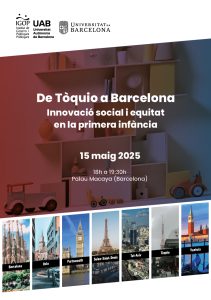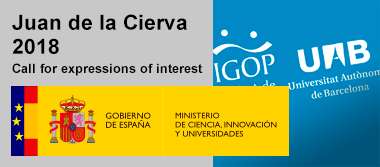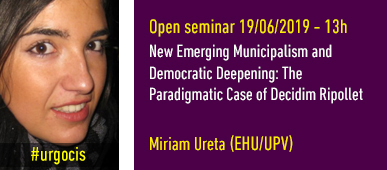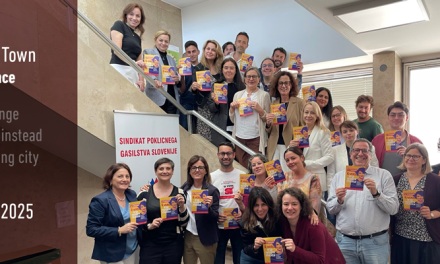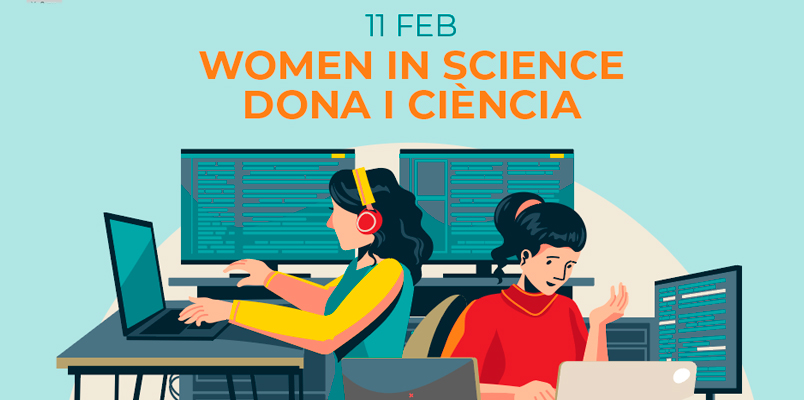Social Innovation in Early Childhood Education (0–3 years): A Key Driver for Equity and Wellbeing
A comparative study involving the Institute of Government and Public Policies (IGOP) and supported by the “la Caixa” Foundation analyzes how social innovation in the 0–3 age stage can improve equity and the universalization of early childhood education and care (ECEC) services.
The main findings will be presented on May 15 at the Palau Macaya in Barcelona during the event “From Tokyo to Barcelona: Social Innovation and Equity in Early Childhood.”
What: Study presentation – Social Innovation and Equity in ECEC (0–3)
When: May 15, 2025 – 6:00 PM
Where: Palau Macaya, Barcelona (Pg. de St. Joan, 108, Barcelona )
Registration: Free but required due to limited capacity
Social innovation has become a key element in the transformation of the welfare state. This is one of the main conclusions of the book Social Innovation and Welfare State Retrenchment. A Comparative Analysis of Early Childhood Education and Care in Europe and Beyond , edited by Raquel Gallego (UAB), Sheila González Motos (UB), and Lara Maestripieri (UAB), and published by Emerald Publishing Limited. The study, involving the Institute of Government and Public Policies and funded by the “la Caixa” Foundation, explores the role of social innovation in early childhood education and care (ECEC) in various international contexts.
The book examines how social innovation can contribute to ensuring equity and the universalization of services for children aged 0 to 3 years—an area where social investment is crucial for equal opportunities and reducing gender and educational inequalities. It features an innovative research design that studies the process of institutionalizing social innovation in ECEC through seven case studies from across Europe and beyond.
In four of the seven cases analyzed (Oslo, Seine-Saint-Denis, Venice, and Tokyo), the institutionalization of social innovation is shown to improve integration and accessibility in public early childhood education services. In three other contexts (Portsmouth, Barcelona, and Tel Aviv), social innovation helps to compensate for market and state shortcomings, addressing family needs where public provision is limited. However, in all cases, regulation of social innovation is key to preventing socioeconomic bias.
This study represents a fundamental contribution to understanding how the interaction between social innovation and public policy affects equity and wellbeing in advanced capitalist economies. The results highlight the need for a flexible policy framework that enables the integration of innovative solutions into early childhood education services, ensuring accessibility and quality for all families.
